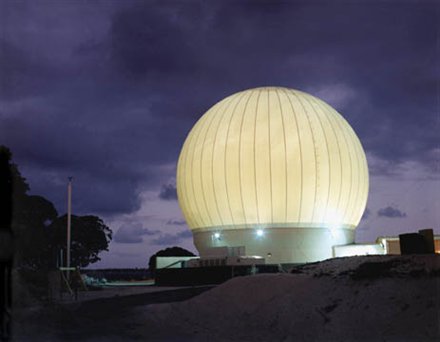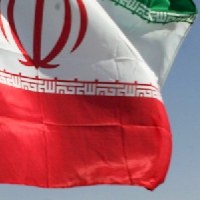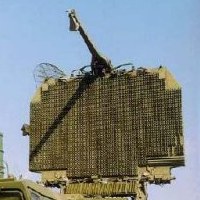![]()
Sun, Sept 25, 2011 | The Meir Amit Intelligence and Terrorism Information Center
Iran: Turkey criticized over its decision to deploy anti-missile radar in Turkish territory
Turkey came under increasing criticism from Iran this week over its decision to sign an agreement allowing the United States to deploy an advanced X-Band radar in Turkish territory as part of NATO’s missile protection program.
Foreign Minister Ali-Akbar Salehi said that Turkey’s decision is inappropriate and unjustified. Speaking at a press conference with the Armenian foreign minister, Salehi said that the deployment of the system is cause for concern in Iran and in other countries in the region, and that Turkey has to reconsider its decision (IRNA, September 17).
Defense Minister Ahmad Vahidi also had reservations about Turkey’s decision, saying that the countries in the region pose no threat to Turkey that would justify the deployment of the missile protection system in its territory (ISNA, September 19).
The Iranian media extensively covered Turkey’s agreement to deploy the American radar. The government news agency IRNA put an emphasis on the criticism made by Turkish politicians and media of the deployment, arguing that the purpose of the missile protection system is to serve “the conspiracies of the imperialists” against the Muslim world (IRNA, September 18).
The Revolutionary Guards periodical Sobh-e Sadeq strongly criticized Turkey’s decision and warned it about the consequences.
An editorial published by the weekly said that the game played by Turkish leaders on the Western court does not serve Turkish domestic and foreign interests. Turkey cannot cast itself as an enemy to the Zionists and protector of the Palestinian people while following a policy that serves American and Israeli interests in the region.
Turkey’s policy will impact its relations with its neighbors and its status in Muslim public opinion. The Turks should know, the article said, that the West never keeps its promises, and whatever promises Turkey received from Western countries for deploying the radar will remain worthless, while Turkey stands to lose the most from the game played by its leaders (Sobh-e Sadeq, September 18).
The Iranian criticism of Turkey was not confined to its agreement to deploy the American radar system: PM Erdogan’s political trips to North Africa led to criticism of Turkey’s policy in the Arab world.
In an interview given by Alaeddin Boroujerdi, head of the Majles Foreign Policy and National Security Committee, to the Iranian Diplomacy website, the conservative Majles member accused Turkey of serving the interests of its Western allies through its policy in Syria. Turkey is a member of NATO and is interested in joining the EU; accordingly, it is forced to adopt the policy of the United States and European countries. Boroujerdi noted that the Muslim world expects Turkey, as an important and influential Muslim country, to distance itself from the policy of the Western world and the United States, and give primacy to the interests of the Muslim world.
Speaking about claims that, through its policy, Turkey seeks to become the leader of the Muslim world, Boroujerdi said that Turkey cannot be expected to lead the Muslim world after PM Erdogan declared support for a secular Egypt after the fall of President Mubarak (Farda, September 18).
The Iranian media also criticized Turkey’s regional policy, claiming that it seeks to take advantage of the developments in the Arab world to reinforce its position as the hegemonic power in the region at Iran’s expense, and advance its national interests while collaborating with the Western world. According to the Iranian media, Turkey seeks to present the Arab world with an alternative government model to that offered by Iran after the toppling of Arab regimes in recent months.
This week Fars News Agency published a commentary that appeared on Voice of Iraq Radio about PM Erdogan’s latest trips to North African countries. According to the commentary, Erdogan’s visit is part of a U.S.-led project, with the collaboration of the Arab Persian Gulf states, to weaken Iran’s regional position. Erdogan is coordinating his regional policy with the Western world and the United States, except when it comes to his attitude towards Israel, in which case he has to consider the domestic public opinion in Turkey as a result of the Mavi Marmara incident. This is evident both in Turkey’s policy in Syria and in its efforts to strengthen the Sunni elements in Iraq, being an attempt to curb Iran’s growing influence (Fars, September 19).
One example of Iranian concerns over Turkey’s political initiatives in the Arab world could be seen in an interview given by Javid Ghorban-Oghli, former director of African affairs in the Foreign Ministry, to the Iranian Diplomacy website.
Speaking about Erdogan’s visit to North Africa, Ghorban-Oghli said that it was designed to advance Turkey’s regional position and take advantage of regional developments to increase its political and cultural influence. The former Iranian diplomat argued that, as far as Turkey itself is concerned, its policy is correct because it has the power to present Arab countries with a worthy, successful model that integrates economic success with religious concepts and values.
Ghorban-Oghli criticized Iran’s current approach towards the developments in the Arab world, saying that it is unrealistic, unlike that adopted by Turkey. Iran believes that the developments in the Arab world reflect an “Islamic awakening”, while that is not actually the case. Islamic parties and groups played no major role in the uprisings in the Arab world, and no Arab country is interested in establishing an Islamic government. Turkey, however, has taken a more realistic approach towards the developments in the Arab world, and unlike Iran, it enjoys international and regional support. Therefore, Turkey is likely to play a major role in the future of the Arab world while Iran’s status will probably diminish (Iranian Diplomacy, September 19).
The Iranian criticism of Turkey’s policy was also reflected in a daily column in the Keyhan newspaper that features opinions sent in by readers. In the column published on Monday, September 19, one reader said he came to the conclusion that the policy implemented by Turkey under the banner of Islam is actually a new type of hypocrisy. It is not inconceivable, the reader wrote, that in the future the government of Turkey will apologize to Israel for sending the Mavi Marmara to the Gaza Strip.



 RSS
RSS












Iran: Turkey criticized over its decision to deploy anti-missile radar in Turkish territory | Middle http://t.co/JXfFHwfH
Iran: Turkey criticized over its decision to deploy anti-missile radar in Turkish territory | Middle http://t.co/JXfFHwfH